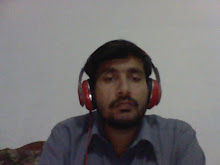Long Question Answers Chapter no.2
i.
Explain
the main functions of operating system.
Ans:
The main functions
of OS are;
Process Management:
It
is an essential part of OS. A process is a program in execution. In
computer system processes are executed concurrently or waiting for their
turn. A process need resources like
processing resource, I/O resource and memory
resource.
Memory Management:
Memory management is the process of
allocating memory space for user
programs in main memory. When the programs are run by users OS allocate
portion of free memory to programs. When
the program is closed OS will free the memory
portion for re use.
Input/Output Management:
It is the process of controlling the
operation of all the I/O devices attached to the computer. User communicate
through various I/O devices such as keyboard, mouse, monitor etc. management of
these devices is the responsibility of OS.
File
Management:
It is the part of OS that organizes, stores and keep track of files and
folders in the computer. These files may be programs, images , audio or video,
etc. OS controls the common operations perform on files. These operations
include creating, opening, editing, copying, deleting the files.
Resource
Management:
Operating system automatically manages the
resources of a computer when application programs are executed. The resources
include microprocessor, memory and all the devices attached to the computer. OS
allocate these resources to the application programs according to the
requirement.
User Management:
User management is an important feature of OS
for maintaining a secure computer system. The OS gives full control over a
computer to a person known as administrator. He installs various programs on
the computer for users. He also creates and manages user accounts. A user is
assigned a user name and a password. The Admin allows the user to run various
programs installed on the computer. The admin does not allowed him to install
new programs or create new users.
➤➤➤➤➤➤➤➤➤➤➤➤➤
ii.
Describe the following computer interfaces.
i) Command Line Interface
ii) Graphical User Interface
iii) Menu-driven Interface
Ans: Command Line Interface:
In
this interface commands are given to computer with a keyboard. It is based on
textual input. The user types in a command and presses the enter key to execute
it. Two commonly used operating systems that use CLI are DOS and UNIX.
Graphical User Interface:
This
is a graphical interface uses windows, icons, menus and pointers. To perform a
task, the user has to select icons or make choices in menus using a pointing device like mouse. Some advantages
of GUI interface are;
i.
Easy to
learn.
ii.
No need
to memorize the commands.
iii.
Allow to run more than one programs.
iv.
User
friendly as compared to CLI.
Menu-driven Interface:
It presents menu on the
screen. User makes a choice and then the next menu appears. It is easy to use
as compared to CLI. The user reads the options and make his choice. These
interfaces are normally used in mobile phones and iPods etc. the two common
menu driven operating systems are, Novell’s Netware and ProDOS.
➤➤➤➤➤➤➤➤➤➤➤➤➤
iii. Describe the following types of Operating system.
Ans: Batch Processing System:
In a batch processing system jobs are grouped in batches and the
computer executes them one by one. When the current job terminates the computer
automatically loads the next job and starts executing it.
Batch processing systems
are suitable for tasks where large amount of data has to be collected and
processed on regular basis. For example, in credit card billing systems, in
examination card system.
Time-Sharing System:
In time sharing system multiple users can
run different programs. It allows many users to have access to a computer at the
same time and share the computer’s time. These operating systems are used in
minicomputer and mainframe computer. Time sharing OS are used in organizations
such as airline, bank hotel and universities etc., where many users need to
access the central computer at the same time.
Real-time System:
These operating systems must
process information and produce a
response within a specified time. Real time
OS are developed for special applications.
They are used to control industrial processes
such as oil refining. For example a
measurement from an oil refinery
indicating that temperatures are getting too high might
demand quick responses to avoid an
explosion.
They are also used in military and space
research programs. It is used to monitor the
position of rocket in space.
➤➤➤➤➤➤➤➤➤➤➤➤➤
iv.
Write short note on the following:
a) Macintosh
b) Linux
Ans: Macintosh OS:
Macintosh OS is a series of operating
system by apple incorporation for their macintosh computer. It was introduce in
1984 and has GUI interface. The latest version is Mac OS X. It is UNIX based
user friendly operating system. Some are used on iPhone, iPad, iPod and new
Apple TV.
Linux Operating System:
Linux is a free open- source
operating system. It was introduced by Linus Torvaids in 1991. It was faster
but difficult to use as compared to Mac OS and Windows OS. Millions of programmer
around the world work on Linux to improve it. It gave much security against
viruses and spy attacks as compared to windows. It can be installed on PCs,
laptops and mobiles. Popular distribution of Linux includes Debian, Ubuntu,
Fedora, Red Hat and openSUSE etc.
v. Describe the basic icons of windows operating system.
Ans: An icon is a small graphical symbol that represents a file, folder, application or device. It has a label at the bottom describing its name. The basic icons are as under;
a. Recycle Bin
b. My
Computer
c. Folder
Icon
d. File
Icon
e. Program
Icon
f. Shortcut
Icon
Recycle Bin:
When a file or folder is
deleted it goes to the Recycle Bin. It is a temporary place for deleted items.
The user can restore any file or folder to its original location.
My Computer:
It allows the user to
access the contents of computer drives and manage files and folders.
Folder Icon:
A folder is used to store
files. It can have another folder inside it, called subfolder. It resembles a
physical file folder and is by default yellow in color.
File Icon:
In GUI interface files are
also represented by icons. It may contain text, image, audio or video data. The
image varies according to data.
Program Icon:
Executable program files
are also represented by icons. The image of icon varies according to the
program.
Shortcut Icon:
To access files or folders
quickly shortcut icons are created. They have an arrow at the bottom left
corner and the name below it.
➤➤➤➤➤➤➤➤➤➤➤➤➤
Fbise Notes-Computer | Fundamentals of Operating System Long Questions
 Reviewed by fbisenotes
on
July 16, 2019
Rating:
Reviewed by fbisenotes
on
July 16, 2019
Rating:
 Reviewed by fbisenotes
on
July 16, 2019
Rating:
Reviewed by fbisenotes
on
July 16, 2019
Rating:


















No comments: